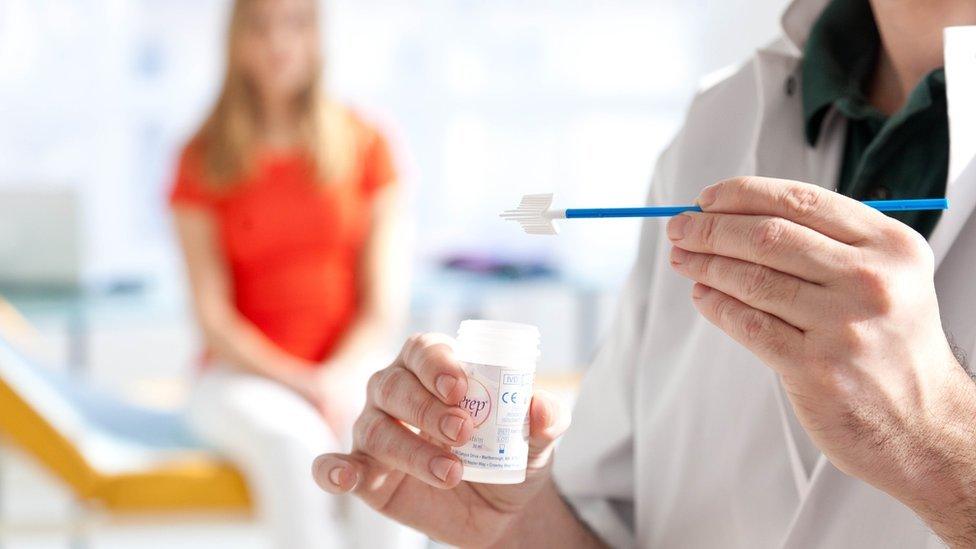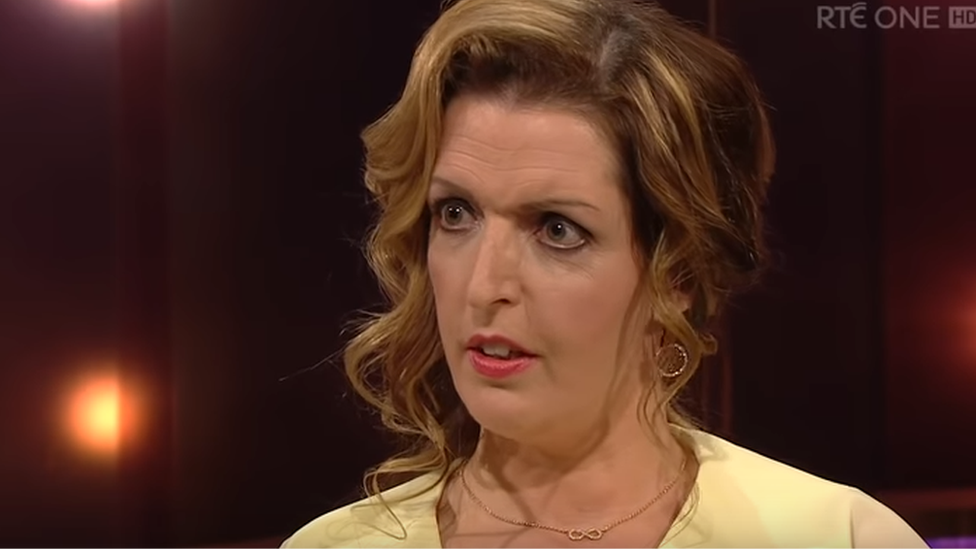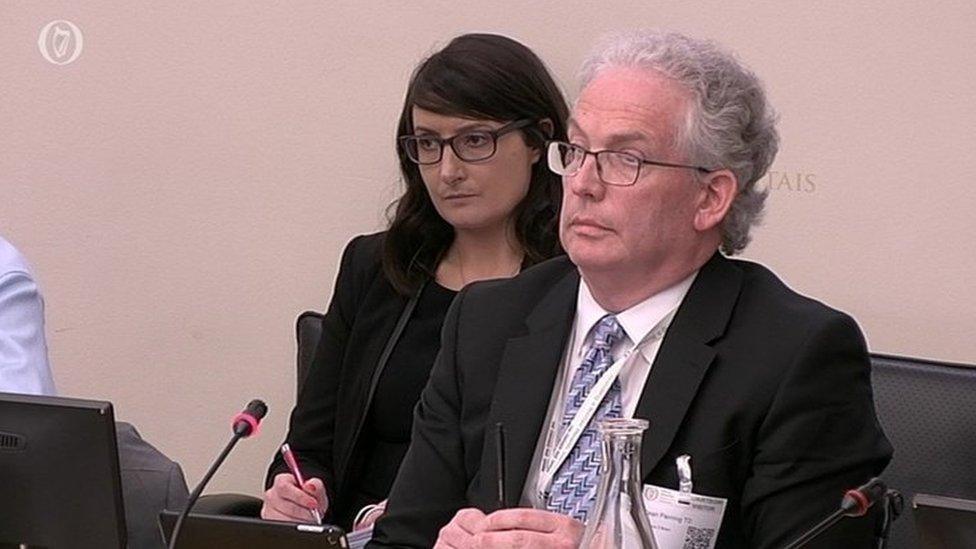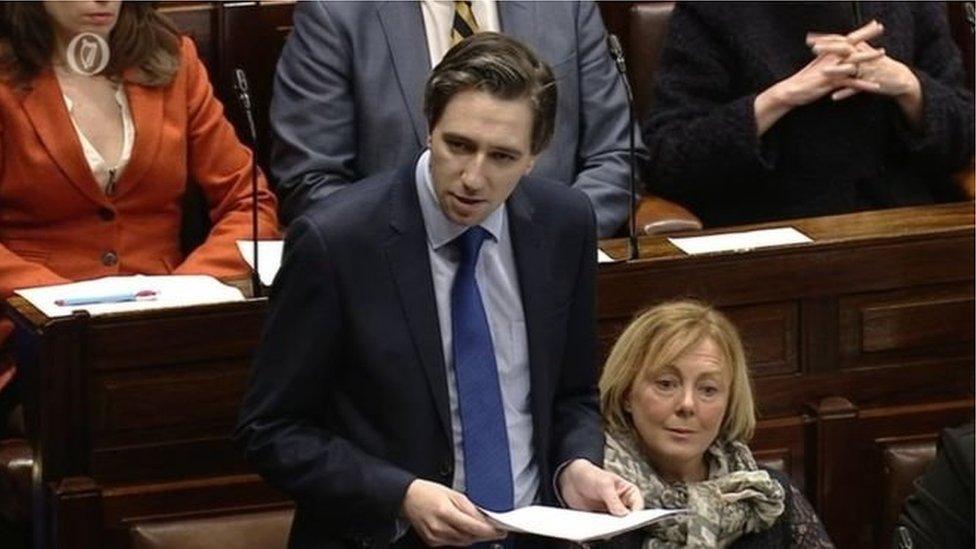Q&A: Ireland's cervical cancer scandal
- Published

A government health scandal follows the revelation that 208 women diagnosed with the cancer should have received earlier intervention
Less than a month after an Irish woman launched a legal action over incorrect smear test results, the cervical cancer tests scandal has pushed the head of Ireland's health service to resign. But there are still many questions over how the health service and the government will handle the fallout.
How were the incorrect smear tests uncovered?
In April, Vicky Phelan, a 43-year-old woman from Limerick with terminal cancer, launched a High Court action in Ireland after it emerged the results of her smear test seven years ago - which showed no abnormalities - was later found to be incorrect.
The false negative was uncovered during a retrospective audit. It was relayed to her doctor in 2016, but Mrs Phelan was not told for another 15 months.

Vicky Phelan settled her case against a US lab and the HSE for €2.5m
Did she win her case?
The case was taken against the Irish Health Service Executive (HSE) and Clinical Pathology Laboratories, the US laboratory which was analysing the tests for Ireland's National Cervical Screening Programme.
Mrs Phelan settled the case for €2.5m (£2.2m).
Was Mrs Phelan the only woman affected by an inaccurate test result?
No. In the days following the settlement it emerged that more than 200 other women diagnosed with cancer may have missed out on earlier medical intervention.
The HSE established a serious incident management team in April this year to ensure that the affected women were informed that their smear tests had been reviewed.
According to the HSE at least 17 of the 208 women have died.
Allow X content?
This article contains content provided by X. We ask for your permission before anything is loaded, as they may be using cookies and other technologies. You may want to read X’s cookie policy, external and privacy policy, external before accepting. To view this content choose ‘accept and continue’.

Why did Tony O'Brien resign?
Calls for the HSE's director general's resignation were first made following Mrs Phelan's settlement with the HSE.
Minister for Social Protection Regina Doherty criticised Mr O'Brien on-air and expressed her immense dissatisfaction at Mrs Phelan being hauled through the courts "by the HSE".

Tony O'Brien, the head of Ireland's health service, has resigned
At first, Mr O'Brien refused these calls but admitted the cervical cancer controversy was a "personal blow" to him.
While giving evidence to the Oireachtas Joint Health Committee, Mr O'Brien said he believed a planned review of issue would find testing laboratories were operating within internationally accepted norms.
But after Ms Ní Mhathúna's interview and the pressure to resign intensified for Mr O'Brien. He announced his resignation on Thursday evening.
Mr O'Brien had been due to retire in the summer.

Who is Emma Ní Mhathúna?
Emma Ní Mhathúna is one of the 208 women who had been misdiagnosed.
She had previously featured by the HSE in its campaign to promote the cervical cancer vaccine.
The 37-year-old mother was diagnosed with cervical cancer in 2016, three years after she had received the all-clear from a smear test. That test turned out to be wrong.
In a candid interview with RTÉ, Ms Ní Mhathúna, who is a single mother, said he had to sit down with her children to tell them she was dying.
The interview triggered fury across Ireland as many fingers started to point to the HSE's director general.
Emma Mhic Mhathúna
What happens now?
Irish president Michael D Higgins is set to intervene in the cervical cancer tests scandal and will meet with Emma Mhic Mhathúna, according to the Irish Examiner.
A small number of the 208 have yet to be contacted.
Taoiseach Leo Varadkar said that women affected by the cervical cancer smear controversy will be compensated.
On Wednesday, Varadkar told the Dáil that the attorney general has been asked to work with the State Claims Agency to settle outstanding cervical cancer cases similar to that of Mrs Phelan.
A scoping inquiry into the issues will also be established and a report on the controversy is expected to be published by the end of June.
- Published11 May 2018
